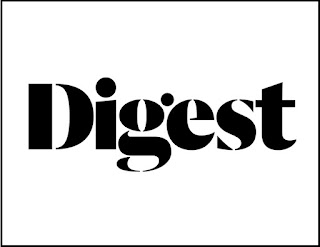What's common in Slovakia, Serbia, Guatemala, Bolivia, Cambodia and Sri Lanka?
By Péter MARTON
All that concern about Facebook's impact on democracy in the wake of the 2016 US presidential elections (mainly, along with some other developments elsewhere) has now apparently caused the company to react. So speculate some. This is a picture of me hearing about this.
Trying to figure out an alternative to setting up sophisticated filters, to try to weed out fake news and other kinds of crap from the Newsfeed, it seems they came up with the idea to turn the Newsfeed into... just Feed.
Because that filtering shit is hard.
To remain: friend feed + junk feed.
The declared aim of this is to see if people want personal posts and posts from pages separated.
As mentioned, this is not in the idea stage now. They selected six countries, Slovakia, Serbia, Cambodia, Sri Lanka, Bolivia and Guatemala, for this experiment and are already affecting journalists' livelihoods in these countries as we speak.
Having become the key distribution channel/infrastructure for news, plenty of benefits of which the social media company has enjoyed, a change that has already decimated as well as re-shaped the media (eating into advertisement revenues, encouraging click-baiting, etc.), Facebook is now potentially undermining the media world further by considering throwing news media aside (well, into a separate feed at least) like chewed gum, depriving news organisations of traffic and revenues.
Of course, responsible users can always access news contents directly, like back in the old days. But the starting point in the discussion (about democracy, populism, filter bubbles and echo chambers, etc.) is exactly that your policies ought not to be based on the expectation that user behavior always leads to wonderful things.
I'm pretty sure Facebook will discover some negative consequences related to the changes discussed here themselves, and perhaps they will revert back to a better modus operandi in the end. Currently they say they have no plans to globalise their experiment.
But you just don't know, with such evidently dysfunctional decision-making in a company with so much power.
They don't consult key stakeholders about their reconfigurations of their service, and their decisions and actions often bring consequences unintended even by them.
In this case, we don't really know why the six countries named above were included in the experiment, and why others weren't (e.g. from Africa, Western Europe or North America).
For online media in the countries included in this it may seem as if...
At least, they are certainly more likely to see their pageviews drop. As a compilation of weekly-comparison pageview data from Slovakia shows (in the last section of this article), a majority of the sites listed there see reduced traffic, to varying degrees (while a minority see growth).
All that concern about Facebook's impact on democracy in the wake of the 2016 US presidential elections (mainly, along with some other developments elsewhere) has now apparently caused the company to react. So speculate some. This is a picture of me hearing about this.
Trying to figure out an alternative to setting up sophisticated filters, to try to weed out fake news and other kinds of crap from the Newsfeed, it seems they came up with the idea to turn the Newsfeed into... just Feed.
Because that filtering shit is hard.
To remain: friend feed + junk feed.
"The experiment, which began 19 October and is still ongoing, involves limiting the core element of Facebook’s social network to only personal posts and paid adverts. So-called public posts, such as those from media organisation Facebook pages, are being moved to a separate “explore” feed timeline."
The declared aim of this is to see if people want personal posts and posts from pages separated.
As mentioned, this is not in the idea stage now. They selected six countries, Slovakia, Serbia, Cambodia, Sri Lanka, Bolivia and Guatemala, for this experiment and are already affecting journalists' livelihoods in these countries as we speak.
Having become the key distribution channel/infrastructure for news, plenty of benefits of which the social media company has enjoyed, a change that has already decimated as well as re-shaped the media (eating into advertisement revenues, encouraging click-baiting, etc.), Facebook is now potentially undermining the media world further by considering throwing news media aside (well, into a separate feed at least) like chewed gum, depriving news organisations of traffic and revenues.
Of course, responsible users can always access news contents directly, like back in the old days. But the starting point in the discussion (about democracy, populism, filter bubbles and echo chambers, etc.) is exactly that your policies ought not to be based on the expectation that user behavior always leads to wonderful things.
I'm pretty sure Facebook will discover some negative consequences related to the changes discussed here themselves, and perhaps they will revert back to a better modus operandi in the end. Currently they say they have no plans to globalise their experiment.
But you just don't know, with such evidently dysfunctional decision-making in a company with so much power.
They don't consult key stakeholders about their reconfigurations of their service, and their decisions and actions often bring consequences unintended even by them.
In this case, we don't really know why the six countries named above were included in the experiment, and why others weren't (e.g. from Africa, Western Europe or North America).
For online media in the countries included in this it may seem as if...
At least, they are certainly more likely to see their pageviews drop. As a compilation of weekly-comparison pageview data from Slovakia shows (in the last section of this article), a majority of the sites listed there see reduced traffic, to varying degrees (while a minority see growth).





Comments
Post a Comment